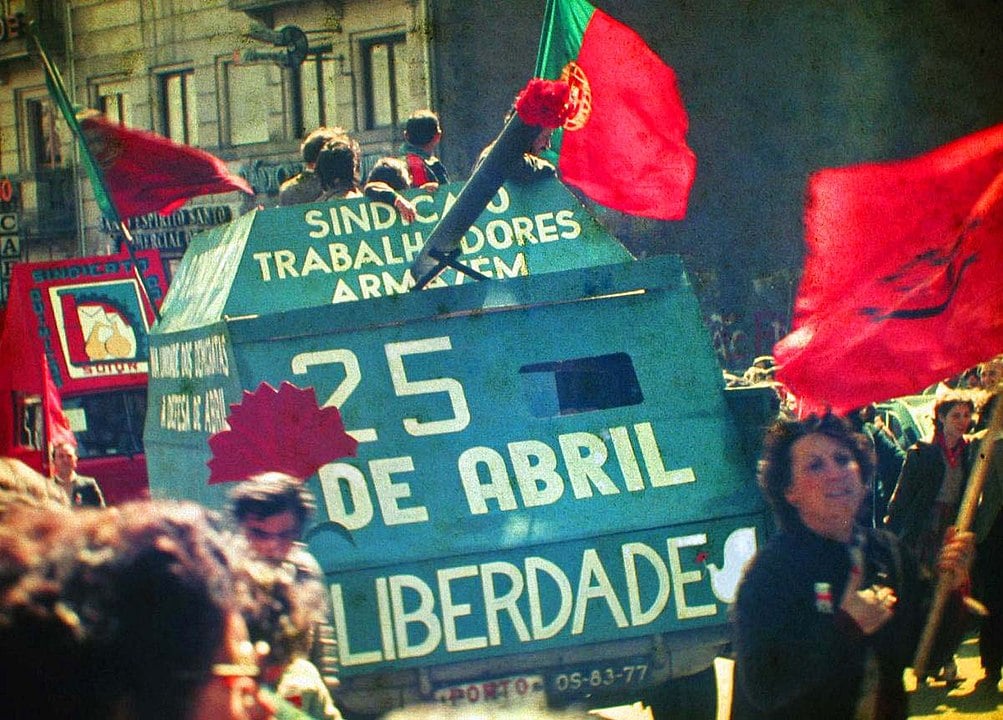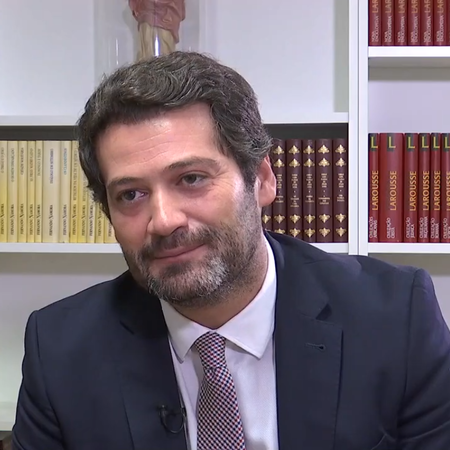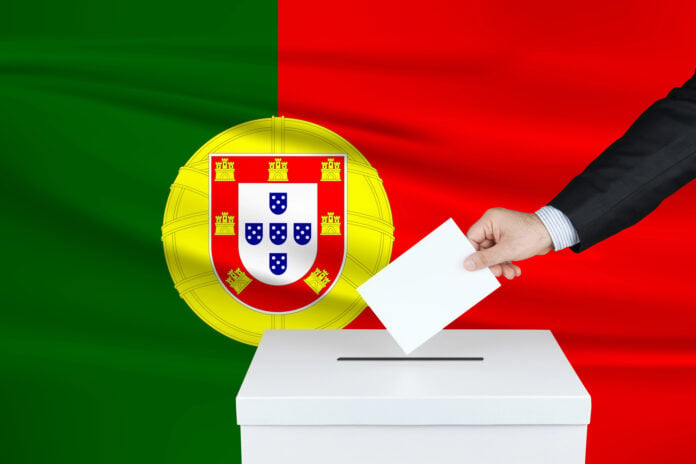As of May 28, 2025 — with the final count of votes from Portuguese emigrants inside and outside of Europe — it’s official: Chega is now the second-largest political force in Portugal. The party has overtaken the historically dominant Socialist Party (PS), taken parliamentary seats from other minor left-wing parties, and confirmed that the European wave of far-right ascendance has indeed reached Portugal.
The country now enters unfamiliar territory for the first time in fifty years of democracy. Never before, in this half-century, has a party with so little time in existence—founded in 2019—grown so rapidly. This sudden rise marks a significant shift in the political balance of a country that, remarkably, has held three legislative elections in just three years.
To understand what this means for Portuguese democracy, here’s a portrait of today’s main political forces, the historical centrist bloc, and how we got here.
The Traditional Center: PS and PSD
A two-party system dominated Portuguese politics for several decades: the Socialist Party (PS) and the Social Democratic Party (PSD). Together, they form what is known as the Bloco Central (Central Bloc) — a centrist axis that, despite ideological differences, has alternated in power and maintained consensus on key issues such as European integration and economic modernization:
- PS (Socialist Party): Center-left, social-democratic. Typically, it governs alone or with the support of further left-wing parties. In 2016, it allied with the Left Bloc and the Portuguese Communist Party in a now-famous coalition known as the “geringonça.”
- PSD (Social Democratic Party): Center-right, conservative-liberal. Previously governed often in alliance with the CDS-PP. It now leads the government under the A.D (Democratic Alliance) banner.
These two parties have shaped the direction of Portuguese democracy since the 1974 Carnation Revolution. While their political debate has always been vigorous, extreme polarization has remained absent from Portuguese political life—a point of pride often seen as reflecting the national culture: moderation, centrism, and a rejection of extremes.

The Left
Beyond the PS, the left-wing space is occupied by several more minor but significant forces:
- PCP (Portuguese Communist Party): One of the oldest communist parties in Europe and the oldest in Portugal (understandably banned during the Estado Novo dictatorship). Strongly tied to the trade union movement. The PCP advocates state investment in essential public sectors such as housing, healthcare, and education. Recently, it has been one of the most vocal parties calling for peace — both in Palestine and opposition to NATO involvement in Ukraine. The latter has been controversial and pointed out as one factor why so many electors stop voting for them.
- Left Bloc (BE): A coalition of the radical left. Advocates social justice, gender equality, and anti-austerity policies and is increasingly vocal in support of LGBTQ+ rights and inclusive language — the latter criticized as disconnected from the “real problems” of Portuguese citizens. It suffered a heavy blow in the 2025 legislative elections, now holding only a single parliamentary seat, that of its leader, Mariana Mortágua.
- Livre: An eco-socialist party advocating universalism, liberty, equality, and solidarity. Firmly pro-European, it positions itself “in the middle of the left,” aiming to build a “progressive majority capable of creating political alternatives in Portugal and Europe.” In these elections, it was the only left-wing party to grow, now holding six seats in Parliament.
- PAN (People–Animals–Nature): A party focused on environmental and animal welfare issues, positioned at the center but with a left-leaning tendency. It has elected one seat, that of its leader, Inês de Sousa Real.
The Liberal Right and the Far Right
For many years, the CDS-PP mainly represented the right — a conservative, Christian-democratic party now with little influence — and the more recent Iniciativa Liberal (Liberal Initiative, IL), founded in 2017, with a pro-market liberal orientation.
But the game-changer is now Chega.
Chega: From the Margins to the Center of Politics
Founded in 2019 by André Ventura, a former PSD member, Chega emerged with a discourse against “political correctness,” corruption, and what it sees as traditional parties’ complacency.
Its rhetoric blends nationalism, conservatism, tough-on-crime proposals — including a call to amend the Constitution to introduce life sentences — anti-immigration stances, and blunt populist language.
The numbers tell the story:
- 2019: Enters Parliament with a single deputy (André Ventura).
- 2022: Wins 12 seats with 7.8% of the vote.
- 2024: Grows exponentially, electing 50 deputies.
- 2025: With votes from overseas constituencies counted, becomes the second-largest political force in the country with 60 seats.
The party’s growth alarms some and excites others.
At the European level, Chega follows the trend of other rising far-right or nationalist movements in France, Italy, Spain, and Germany.

But Why This Rapid Growth?
Several factors have been identified:
- Disillusionment with traditional parties and perceptions of corruption. Many voters, especially in rural and interior regions, feel abandoned and believe the traditional parties only care about Lisbon. The recurring devastation of wildfires and lack of investment in public services like healthcare, education, and culture have led many to radicalize and reject the Bloco Central entirely.
- A growing urban-rural divide, with Chega performing well in economically vulnerable areas. The Alentejo region is a striking example — once a stronghold of the Communist Party, it has now shifted toward the far right.
- Media visibility, through both social media — where Ventura built a strong, personalized presence — and television. Media coverage has reached extremes, with news outlets offering minute-by-minute updates of Ventura’s every move. Before the elections, his ambulance ride to the emergency room was broadcast live on all major channels.
- A broader European trend of far-right growth.
What Now for Portuguese Politics?
Chega’s rise has destabilized the political landscape, complicating the formation of stable governments. None of the major parties has agreed to form a formal coalition with Chega, but its parliamentary weight is now undeniable.
With 60 seats in Parliament, Ventura’s party is the main opposition to the A.D’s 88 seats in government.
Possible future scenarios include:
- Minority governments with unstable support.
- Unexpected or temporary alliances to secure a majority.
- Increased polarization, with a shift in political tone and discourse.
At the same time, the rise of IL and the continued presence of BE and PCP show that voters are still seeking alternatives beyond the PS/PSD dynamic.
A New Political Era
Portugal’s long-standing reputation for political moderation is now being tested.
The presence of a far-right party as a central force in Parliament is no longer a marginal phenomenon — it is an institutional reality.
Among the reforms now being discussed is a potential constitutional revision, which some see as a cause for social alarm and others as a cause for great enthusiasm.
It remains to be seen whether this new political makeup leads to reform, greater civic engagement, or further fragmentation.
But one thing is certain: the age of political predictability in Portugal is over.


